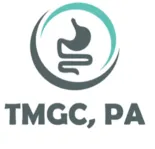The following American Cancer Society guidelines are recommended for those people at average risk for cancer (unless otherwise specified) and without any specific symptoms. People who are at increased risk for certain cancers may need to follow a different screening schedule, such as starting at an earlier age or being screened more often. Those with symptoms that could be related to cancer should see their doctor right away.
Colon and rectal cancer
Beginning at age 50, both men and women at average risk for developing colorectal cancer should undergo screening. There are a variety of tests that are designed to find both early cancer and polyps but colonoscopy remains the gold standard. This is due to its ability to view the entire colon and both detect, as well as remove polyps during the same procedure. If you have questions about the colonoscopy procedure or other screening tests, we encourage you to talk to your doctor about which method is best for you.
You should talk to your doctor about starting colorectal cancer screening earlier and/or being screened more often if you have any of the following colorectal cancer risk factors:
- A personal history of colorectal cancer or adenomatous polyps
- A personal history of chronic inflammatory bowel disease (Crohn’s disease or ulcerative colitis)
- A strong family history of colorectal cancer or polyps (cancer or polyps in a first-degree relative [parent, sibling, or child] younger than 60 or in 2 or more first-degree relatives of any age)
- A known family history of hereditary colorectal cancer syndromes such as familial adenomatous polyposis (FAP) or hereditary non-polyposis colon cancer (HNPCC)

